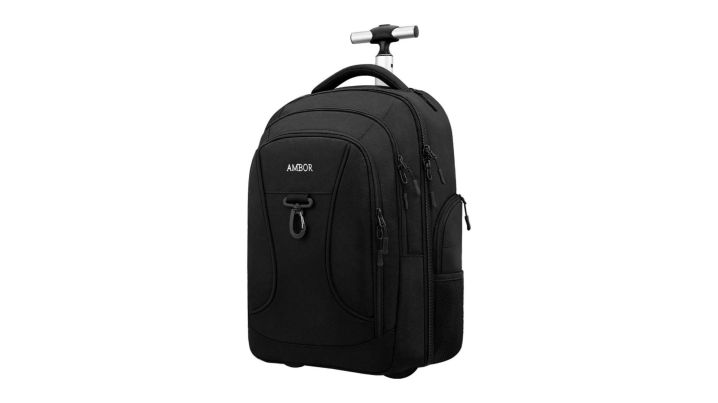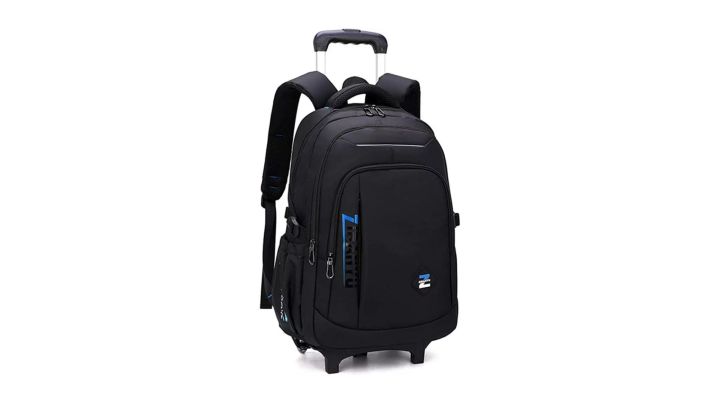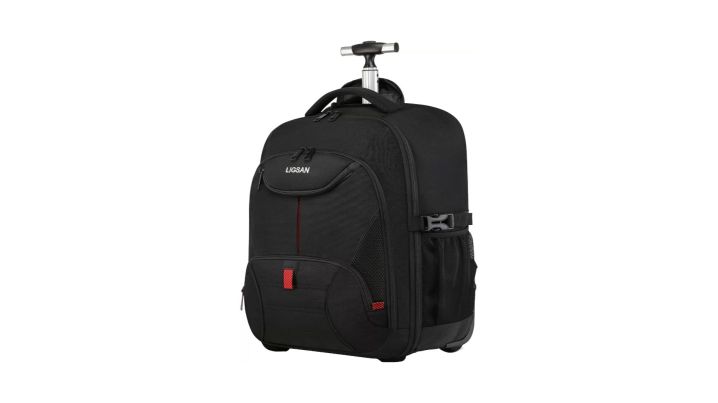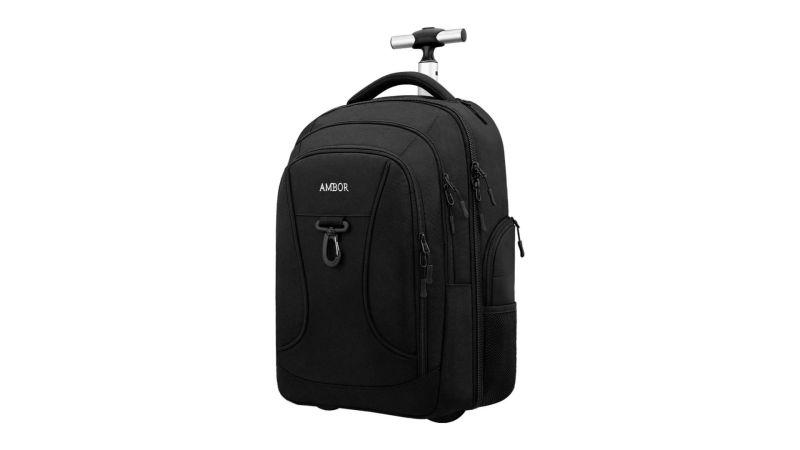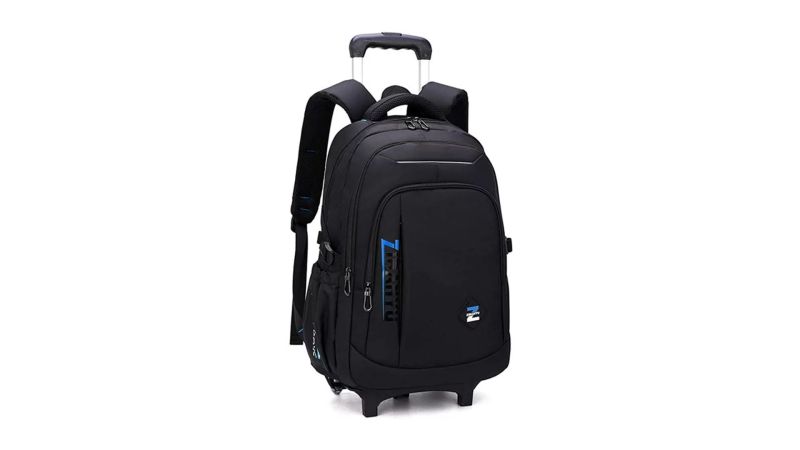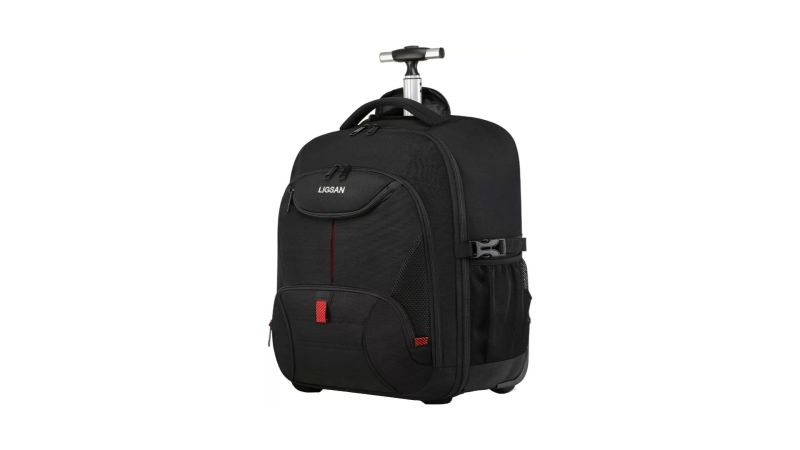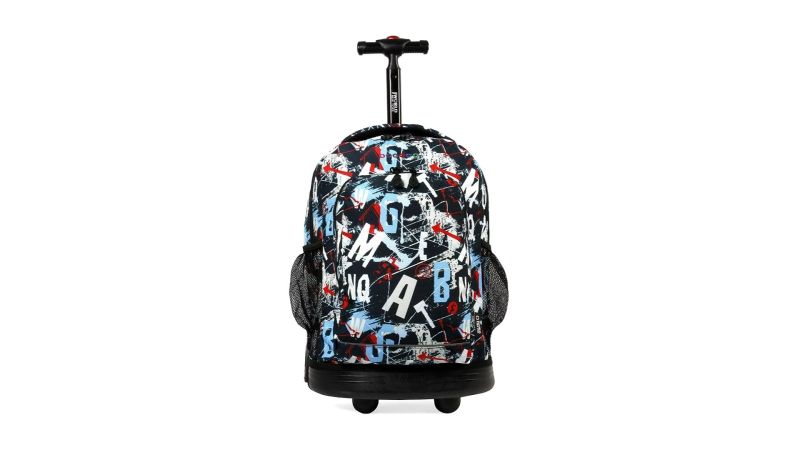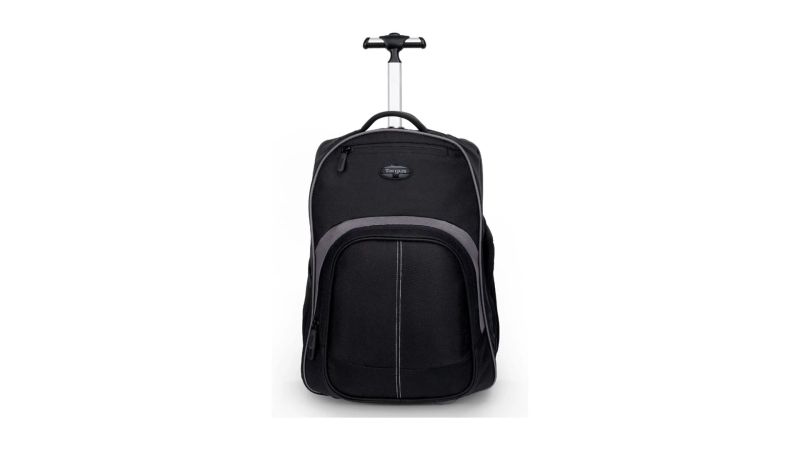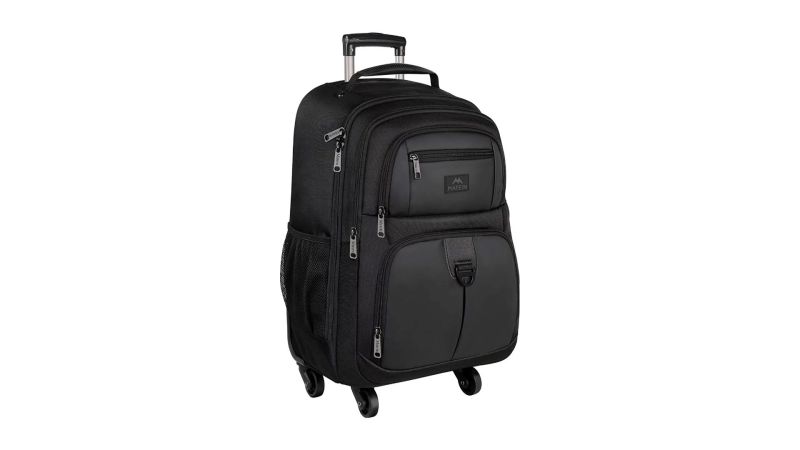We may earn revenue from the products available on this page and participate in affiliate programs.
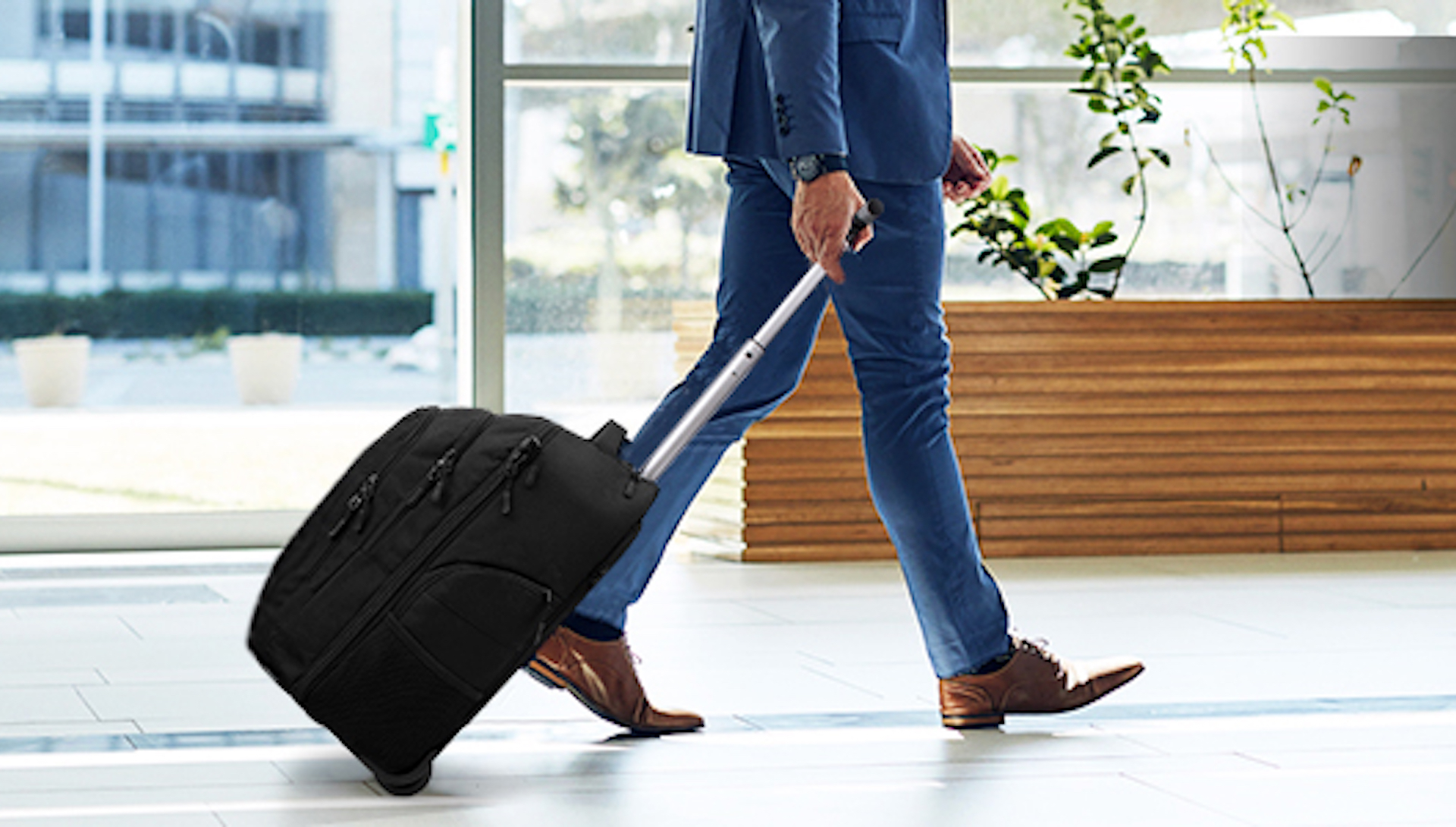
Calling all students, urbanites, and traveling salesmen (if those are still a thing) — it’s time to claim a superb rolling backpack for your bustling life. Sure, an EDC backpack is perfect for day-to-day use, and waterproof backpacks are better suited for wilder excursions, but what can be better than a typical static backpack than one with wheels? Beneath their somewhat gimmicky appearance often lies quality luggage solutions capable of pulling multiple duties for many types of hardworking folk. There’s a clear purpose for each of them, from bookbags sitting beneath a desk to carry-ons sitting beneath an Airbus seat. What may not be so clear is which one is the right pick for you.
To answer just that, we rounded up the best rolling backpacks on the internet. Whether you’re hunting for a suitable bag for the next business trip or need something for the tots and the new school year, there’s a product for you here. So, come on down, scroll on through, and enjoy sifting through the best rolling backpacks on the market.
- Best Overall: Ambor Rolling Backpack
- Best Value: Vidoscla Trolley Backpack
- Honorable Mention: Ligsan Rolling Backpack
- Best for Kids: J World New York Sunny
- Best for School: Targus Compact Rolling Backpack
- Best for Travel: Matein 4-Wheeled Rolling Backpack
Best Overall
Ambor Rolling Backpack
Best Value
Vidoscla Trolley Backpack
Honorable Mention
Ligsan Rolling Backpack
Best for Kids
J World New York Sunny
Best for School
Targus Compact Rolling Backpack
Best for Traveling
Matein 4-Wheeled Rolling Backpack
Things to consider when buying rolling backpacks
Size and portability
How big is it, and how easy is it to lug around? The duties of a rolling backpack ensure that most, if not all, are appropriately sized to be worn on one’s back and fit in airplane storage compartments. Many are quite lightweight, with the heaviest options hovering around five pounds. Of course, this is negated if you’re a pack mule lugging a lot of textbooks, computers, or depleted plutonium.
Many large rolling backpacks will be roughly 20 inches tall, with rolling backpacks for kids typically measuring three to four inches shorter and approximately one to two inches narrower. The main gripe against rolling backpacks is their lack of space versus traditional luggage cases.
Storage space
Being smaller than conventional luggage, rolling backpacks will have to get clever in how they carry things while retaining their highly mobile size. Whether a backpack has two, five, or even a dozen compartments, there will always be an ultra-large “main” compartment that comprises most of the storage capacity. Rolling backpacks will often have pockets for laptops or straps for securing clothing, just like standard luggage cases. Rolling backpacks for kids may forgo some storage solutions for a more rudimentary layout better suited to holding school supplies and lunch boxes. In contrast, rolling backpacks for school or work may sport extra slots for additional electronics or paperwork.
Durability and build quality
This is a bit trickier of an area, as many companies don’t disclose exact materials aside from “high-density this” and “wear-resistant that.” But it’s just as important as any other factor as you’d want a product that can last you through years of work trips or back and forth across the university campus. Good tell-tale signs would include generous use of thick nylon construction and stitching, similar in materials to some tactical accessories. Plastic or leather reinforcements near the base will lessen the chances of the rolling backpack giving out and act as a sturdy platform for mounting wheels, and metal handles will be more resilient than plastic.
FAQS about rolling backpacks
Q. How much do rolling backpacks cost?
A: Premium rolling backpacks from popular, well-received brands typically ring in around $80 to $100, with the bulk of them sitting at $90, including our Best Overall and Best for Travel winners. Our Best Value-winning Vidoscla stickers at nearly half that with a $43 price tag, while our Best for Kids and Best for School winners occupy a middle ground, between $55 and $70.
Q. Are rolling backpacks better than standard backpacks?
A: Objectively speaking, they’re better because they’re more functional and mobile. They don’t sacrifice storage space or specialized pockets for valuables, yet they include wheels and handles for use as rolling luggage for airports or road trips. If anything, they can be just a tad bulky from their extra hardware.
Q. How heavy is “too heavy” for a rolling backpack?
A: “Too heavy” is a subjective term varying from person to person, but you don’t want to overload your bag. Over-encumbering your luggage can lead to back fatigue and even injuries when worn as a backpack and when worn improperly, and the towing handle and wheels could break under excessive stress.
Q. Can rolling backpacks be used for personal/carry-on luggage?
A: If they’re the right size to fit, which most of them are, then absolutely. Having to pull double duty as a backpack and not just rolling luggage, they’re forced to maintain a slimmer profile, enabling them to better fit under seats and in overhead bins. The real determining factor is packing wisely.
Final thoughts
The Ambor Rolling Backpack is a superstar of a rolling backpack whose configurations, durability, and well-thought-out storage make it a superb all-purpose backpack. The Ligsan Rolling Backpack is also a worthwhile runner-up, and it deserves a look for its similarly ingenious use of storage space down to the tiniest pocket. The Vidoscla Trolley Backpack rewards the thrifty by delivering even greater reconfigurability while retaining usable storage at a great price and is our Best Value winner.
For those looking for a little more focus, the J World New York Sunny is a vivid and compact choice, acting as the perfectly-sized rolling backpack for kids. At the same time, the Targus Compact Rolling Backpack adds extra valuable equipment space for college and high school students. The Matein 4-Wheeled Rolling Backpack rounds out the group as the ultra-roomy, ultra-mobile airport companion, making it the best rolling backpack for travel.
Methodology
Our guide to the best rolling backpacks has been primarily curated through extensive research, diving deep into manufacturer specs and, more importantly, real-world ownership experiences. The best products were durable, reliable, and superbly capable luggage items that can be used anywhere, with focus shifting as categories called for a more honed-in skillset, such as children or airline travel. Products with little-to-no feedback or egregious quality control were binned in favor of rolling backpacks you and I could easily trust.
Amazon primarily served as our key encyclopedia of consumer input and specs due to the higher density of needed information. Note that some entries and their variants can also be purchased from Target and Walmart or manufacturer sites such as J World and Matein. As always, readers are always encouraged to learn more about how Task & Purpose generally curates its buyer’s guides.
